Teacher back home, maid in America.
He sold tusks and jade in America.
Nation
Do the Wrong Thing
As though, for the first time I saw my country
And, with a pang of recognition, knew
It is all mine and nothing can divide us
It is my soul, it is my body, too
Iris Dement, “From An Airplane”
Everyone’s lost their damn minds. Americans stalk their local chain stores or Arby’s—once thought neutral ground—with an insatiable need to talk politics. Usually in the most asinine and conspiratorial ways.
Goodwyn’s Two Gilded Ages
People Power: History, Organizing, and Larry Goodwyn’s Democratic Vision in the Twenty-First Century
Edited by Wesley C. Hogan and Paul Ortiz (University Press of Florida, 2021).
The history business is a curious gig. In my lifetime at least, it always seems that there’s more at stake in it than ever. It’s increasingly politicized because it is relevant; it’s increasingly relevant because it’s politicized. Fewer practitioners or pundits, these days, idealize a scientific pursuit that is separate from politics: it’s just too obvious how much good and lasting (as well as bad and cringy and forgettable) historical writing comes out of political commitments as well as from sheer curiosity. One of the first lessons they teach undergraduate history majors – in advanced classes – is that even though it’s all about evidence and original sources, history is always shaped by the battles of the present, whether it speaks to those battles explicitly or not. What that means for the ethics and politics of historians, as a guild, is the stuff of grad school – the smoky bar-retreats more than the seminars. What historical knowledge means for progressive politics, too, has remained up for debate.
When I entered graduate school, there were a few books and a few historians who seemed to have, and even to be, the answer. It had been ten years since Lawrence Goodwyn’s The Populist Moment (1978), the slimmed down version of Democratic Promise, and the word we heard was that he had arrived at graduate school with a copy of the manuscript and was told by some august professor, okay… but you have to take some courses before we give you the Ph.D.
Nell’s Kitchen, Larry’s War Room
“Do you need a cup of coffee, comrade?” The offer was generous, the home welcoming. “Open up that thermos,” Larry would say to the visitor, tapping his pack of cigarettes on the kitchen table, with its littered ashtray and open books. “Nell just made a fresh pot,” he’d announce, gesturing with a Styrofoam cup. “Clear off that chair. Have a seat.”
Years later, the cigarettes would disappear, a personal victory over the cancerous southern-based tobacco industry, a win that added decades to his life, before his lungs gave out. It was not his only battle with the insanity of his beloved South—far from it. “We have lots of snakes to kill,” he’d say, ever the Texan, even on Tobacco Road.
Surprise is Your Best Teacher
“Larry Goodwyn has a book out there that nobody talks about.” I was struck by Donnel Baird’s nod in People Power to Goodwyn’s Texas Oil, American Dreams: A Study of the Texas Independent Producers and Royalty Owners Association. Keep in mind Baird is a young black organizer-turned-entrepreneur who runs a venture capital backed startup focused on bringing clean energy and economic development to places like Harlem, where his business is based. (“We are building solar-powered microgrids in New York City’s poorest neighborhoods.”) Now take a look at the first few pages in the portrait gallery of presidents of the organization, TIPRO, that Goodwyn lauded in Texas Oil, American Dreams.
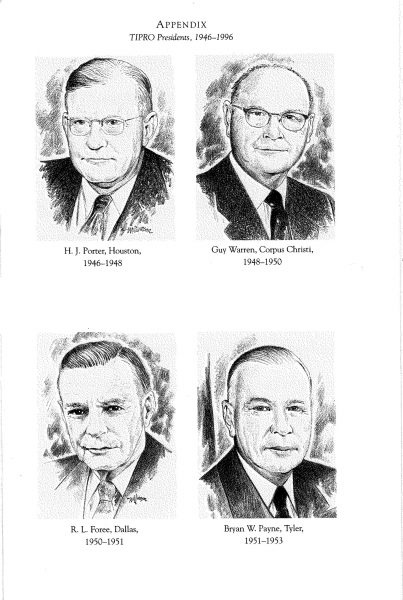
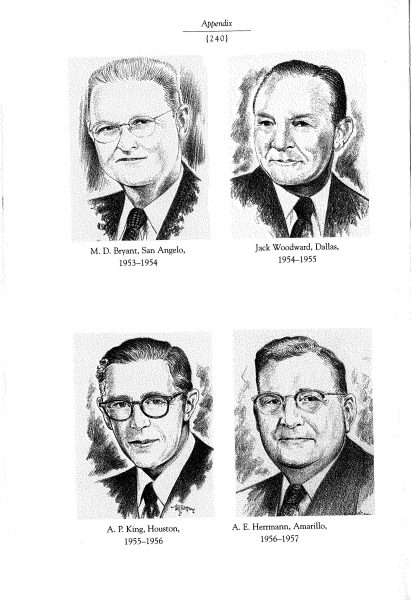
The Ground We Stand On (Redux)
David Waldstreicher’s invocation of Larry Goodwyn’s — and Faulkner Fox’s — role in Durham for Obama reminded your editor to re-up on Goodwyn’s essential First piece on the 2008 campaign…
A Texas Experiment
The harsh restriction on abortion rights just adopted by the Texas state legislature has a curious feature: the ban on abortions after six weeks cannot be enforced by state officials; the police are barred from acting. Enforcement is put into the hands of ordinary citizens—the Texas equivalent of you and me. If any citizen learns of someone involved in or complicit in an illegal abortion, he or she can sue that person. Or, more likely, they can report the offender to one of the civil society organizations that oppose abortion, and its officers will collect the reports and file the suits. The state isn’t involved, and that supposedly means that the law does not violate Roe v. Wade—which, Texans claim, only prohibits state action against abortion, not private action. I doubt that the subterfuge will stand, despite the Supreme Court’s initial refusal to call it out. But there is more to say.
Vaxxing: Reason Alone Can’t Fix It, But Moral Suasion & Mandates Will
They can’t stop asking, what do we have to do to get everyone vaccinated? Here is the current chart in California by county, comparing number of recent cases (blue bars) to percent vaccinated (green bars), as printed in the East Bay Times on September 25th. It’s pretty obvious that the longer the green bar, the shorter the blue bar, and vice-versa. Vaccination works.
Black Docker
I am pushing 85 as I write this and take you back to a sleepy Sunday in 1943 when I am six years old and my father has brought me to the Five-Ten-Hall. While a small clutch of men, including my father, speak animatedly about things that buzz above me, my eyes are locked on one man in that group. I follow him wherever he steps, at a certain distance, too shy to approach. I am engrossed in the light that reflects purple and dark blue off his forehead and cheeks and by the contrast of his totally black skin and the whites of his eyes. No doubt such interest is not new to him. When our eyes meet, he smiles at me in a kindly way. The name of this blackest of men was Benjamin Harrison Fletcher. He was among the greatest of IWW organizers and one of the pioneer civil rights leaders of the early twentieth century: unsung and forgotten today.
Whitewash as Public Service
The following takedown of The 9/11 Commission Report by the late Benjamin DeMott first appeared in 2004 in Harper’s Magazine. DeMott’s essay remains vital because it’s an act of imagination as well as an act of protest.
Nothing New Under the Sun
First published this essay—a transcript of a talk on 9/11 and American intellectuals that Marcus gave at a synagogue in California—in the spring of 2002. Marcus wasn’t in First’s corner in the magazine’s early years. (He was put off by the harsh review in our second issue of his book on The Basement Tapes.) But Charles O’Brien’s rage at the “Vichy Left” in his post-9/11 essay “The War” spoke to Marcus. He bows to O’Brien’s polemic in “Nothing New Under the Sun” (and takes in a post-9/11 point made by First‘s Fredric Smoler as well), yet his own piece isn’t delimited by 9/11’s aftermath. It’s a kind of case statement for anyone who wants to know what distinguishes intellectuals from typical academics, hacks or other purveyors of the given. There’s been a link to “Nothing New Under the Sun” on the right column of First‘s homepage for years. It won’t be coming down any time soon. B.D.
After the Fall
First’s original editors, longtime New Yorkers, were fully alive to experiences of love and death on 9/11. We printed a set of responses to the attacks that implicitly contradicted those who assumed “anti-Americanism is a necessity” (without imposing a patriotic litmus test). Our post-9/11 issue featured red, white and blue colors above the fold, though that wasn’t a simple flag-waving gesture. The exemplary citizens (and New Yorkers) invoked on our cover were Latin Americans and an Afro-American: La Lupe, Eddie Palmieri and Jay-Z.
I’m reminded of how our colors seemed out of time to the all-knowing Left when I listen to commentary by pundits like Mehdi Hasan who link the post-9/11 “War on Terror” with l/6. That tendentious timeline all but erases the threat once posed by radical Islamists. It assumes American Islamophobia/xenophobia was always a scarier thing than Islamofascism. (I wonder if Mehdi Hasan noticed what happened to Samuel Paty—the French middle school teacher who was decapitated last October after he dared to teach his students about the Charlie Hebdo murders.) While it’s probably true the threat to Americans and Europeans from Islamist terrorists has diminished in recent years, that’s due largely to those Kurdish fighters who turned the tide against ISIS at the battle of Kobani. Future historians may come to see the Kurds’ victory there in January 2015 as the true culmination of the war that blew up in America on 9/11. The Kurds certainly grasped the meaning of their victory: “The battle for Kobani was not only a fight between the YPG and Daesh [ISIS], it was a battle between humanity and barbarity, a battle between freedom and tyranny, it was a battle between all human values and the enemies of humanity.” The clarity of these (mainly Muslim) soldiers who beat an international army of Islamists underscores the not-knowingness of Mehdi Hasan et al.
The following set of posts—by Donna Gaines, George Held, Hans Koning, Wendy Oxenhorn, Fredric Smoler, Laurie Stone, Kurt Vonnegut, and Peter Lamborn Wilson—mixes pieces from First‘s back pages with writing by authors who published their first thoughts on 9/11 in other places. B.D.
Uncertain Trombone
Hopefully final covid update:
I realized earlier this week that I’m nothing but grief these days. I think some of my loved ones already knew and that’s why it seemed like they were looking at me funny. There’s the grief of doing everything I was told for eighteen months and getting covid anyway. There’s the grief of so many people’s first question being not “how are you?” but “how did you get it?” (Licking doorknobs and vents at an orgy, of course—there, now do you feel safe that it can never happen to you?)
Returning to “Normal” in Education is Not Good Enough
The late Bob Moses’ last word on overcoming caste in the classroom was posthumously published here by “The Imprint” online news magazine on August 24th. His comrades at the Algebra Project have asked everyone who has kept up with the AP and Moses’ post-SNCC work to help them expand the readership for his final testament.
They are encouraging the use of the following hashtags to help circulate Moses’ Call to the nation:
#bobmoses
#algebraproject
#qualityeducationasacivilright
#mathliteracyforall
#SNCClegacyproject
#youngpeoplesproject
#southerninitiativealgebraproject
#OSUMathLiteracyInitiative
#BaltimoreAlgebraProject
#FloridaLocalAllianceForMathLiteracyAndEquity
#WeThePeopleMathLiteracyForAllAlliance
Here are online coordinates for the Algebra Project:
http://www.algebra.org
https://www.facebook.com/pages/The-Algebra-Project/154755754558564
Got To Be Real
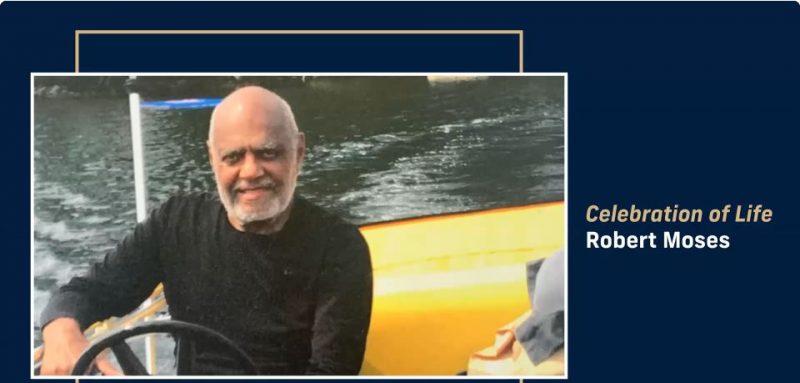
Click HERE to watch the Zoom tribute to Bob Moses hosted by Florida International University, with the participation of the Moses family. (There will be another homegoing ceremony in Cambridge in September.)
The presence of figures from FIU and Broward County’s public school system spoke to the Moses family’s will to keep on pushing the Algebra Project’s program in Southeast Florida. The AP has been integrated into FIU and Broward schools for over a decade and the Moses memorial became another occasion to strengthen institutional connections. (The AP/Broward County link is one more sign of Moses’s instinct to go where America Dilemmas are right in your face. The Broward County School Board is currently resisting Governor DeSantis’s threat to withhold salaries from administrators and teachers who enforce mask mandates.)
Bob Moses’s daughter, Maisha (who Zoomed in at 10:30), and his wife, Janet (who joined around 1:14:45), gave clear-eyed (if sometimes tearful) testimony, fusing kin-folk truths and the book of Curtis Mayfield with The Autobiography of a Yogi and musings of Movement elders. Informed by organizers’ imperatives, their tales of Moses’ life in struggle steered listeners out of doomy darkness. The way forward came into focus for me when another speaker, Whitney Brakefield, made the Moses family’s sense of what’s possible real. Ms. Brakefield instantiated an American future that might seem unimaginable, until you hear her. (She zoomed at 52:25.)
Twenty-Five Years After
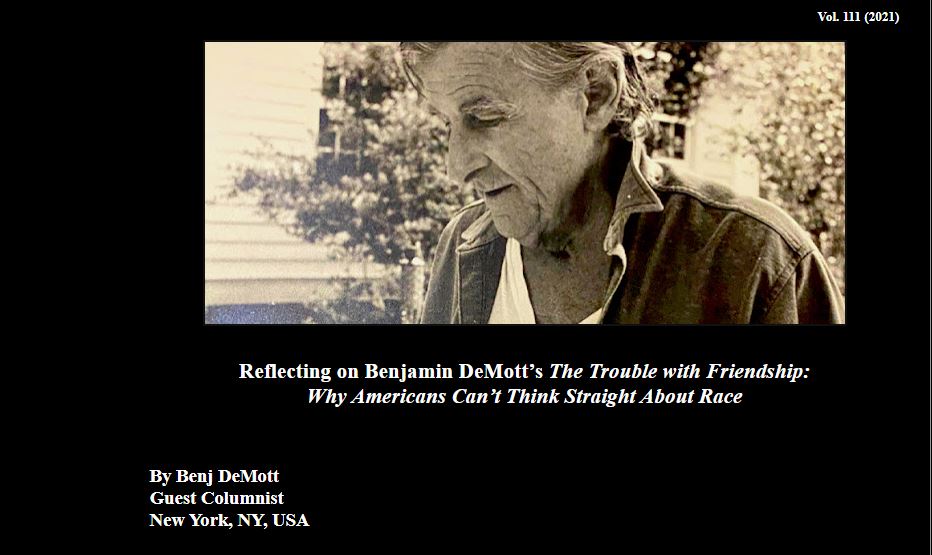
Click HERE to read “Twenty-Five Years After” at Stay Thirsty Magazine.
What is the Truth, or…How the Roto Rooter Man Tried to Kill Me
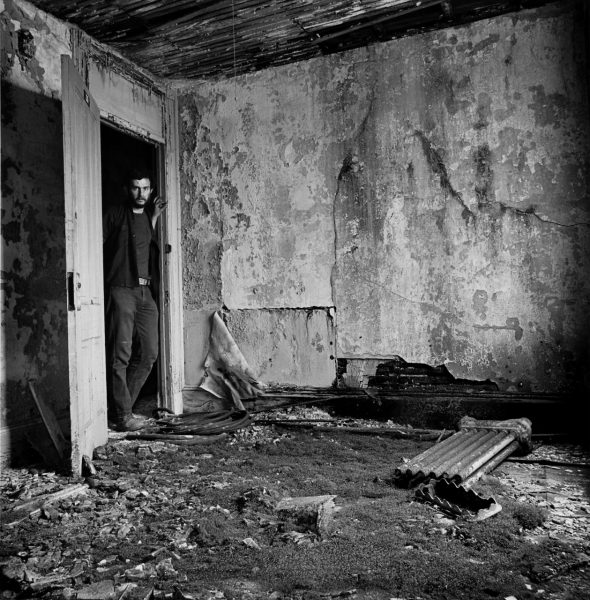
We live in a self-made adobe house and every year the line from the sink to the septic tank backs up and we need to have the Roto Rooter man come out to unclog the pipe. He kneels beneath the kitchen sink with his long electric snake, and unclogs the drain. And that is what happened a few days ago. It took him twenty minutes. Afterward he came outside to figure up the bill, and as the Roto Rooter man stood by his White Roto Rooter Van, I asked him if he had been vaccinated.
Going Back to Jackson: A Mississippi Tribute to Civil Rights Warrior & Algebra Project Founder Robert “Bob” Moses
I often wondered how someone as gentle as Robert “Bob” Moses could be so powerful.
Bob Moses in Mississippi, 1962
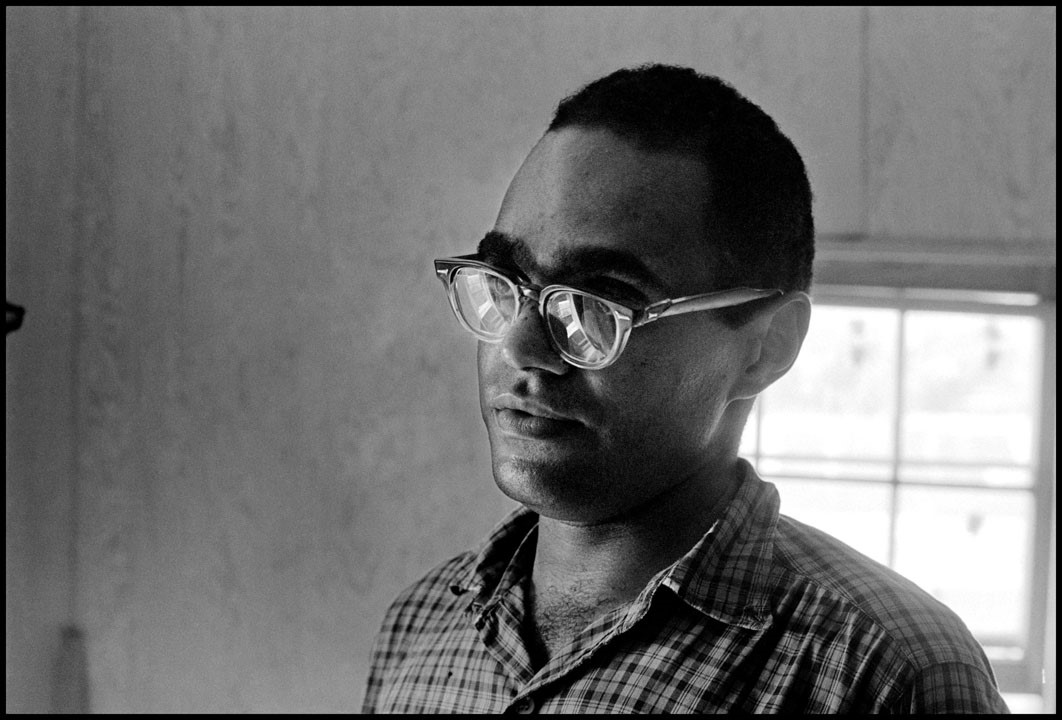
More from Danny Lyon at bleak beauty blog and dannylyonphotos@instagram.
Click “Read more” to see a bigger image.
Zoom to the Future with Bob Moses (A Civil Rights Agenda for the 21st Century)
During the last stretch of his life, Bob Moses made time to meet with small groups of strangers who talked through the issue of caste in America—“what it means to you; and how you see it manifest itself in American classrooms.” He wasn’t just musing around. These Zoom raps—informed, no doubt, by the practice of Moses’ mentor Ella Baker who believed major social insurgencies must be rooted in humane face-to-face interplay—were part of campaign to build a national consensus. Moses knew he wouldn’t be around to see the future he envisioned, but he hoped Americans of all kinds and conditions would suss that the country’s school system must be remade in order to break down our caste structure.
Eliminating Caste in America’s Classrooms (A National Consensus Project Working Paper)
I. America’s caste system depends on caste in classrooms
The idea that America’s schools level the playing field for America’s children is a myth. The playing field has always been sharply tilted–or even completely walled off–to make it easier for the children of affluent families to inherit superior caste status. Even after Brown v. Board of Education, schools are where lower caste students–those with darker-skin and those living in poverty–are taught their subordinate place in U.S. society and in the U.S. economy.
Radical Equations
When Bob Moses died last Sunday, Taylor Branch–author of America in the King Years–pointed out on Twitter that Moses was a student of the Constitution.
